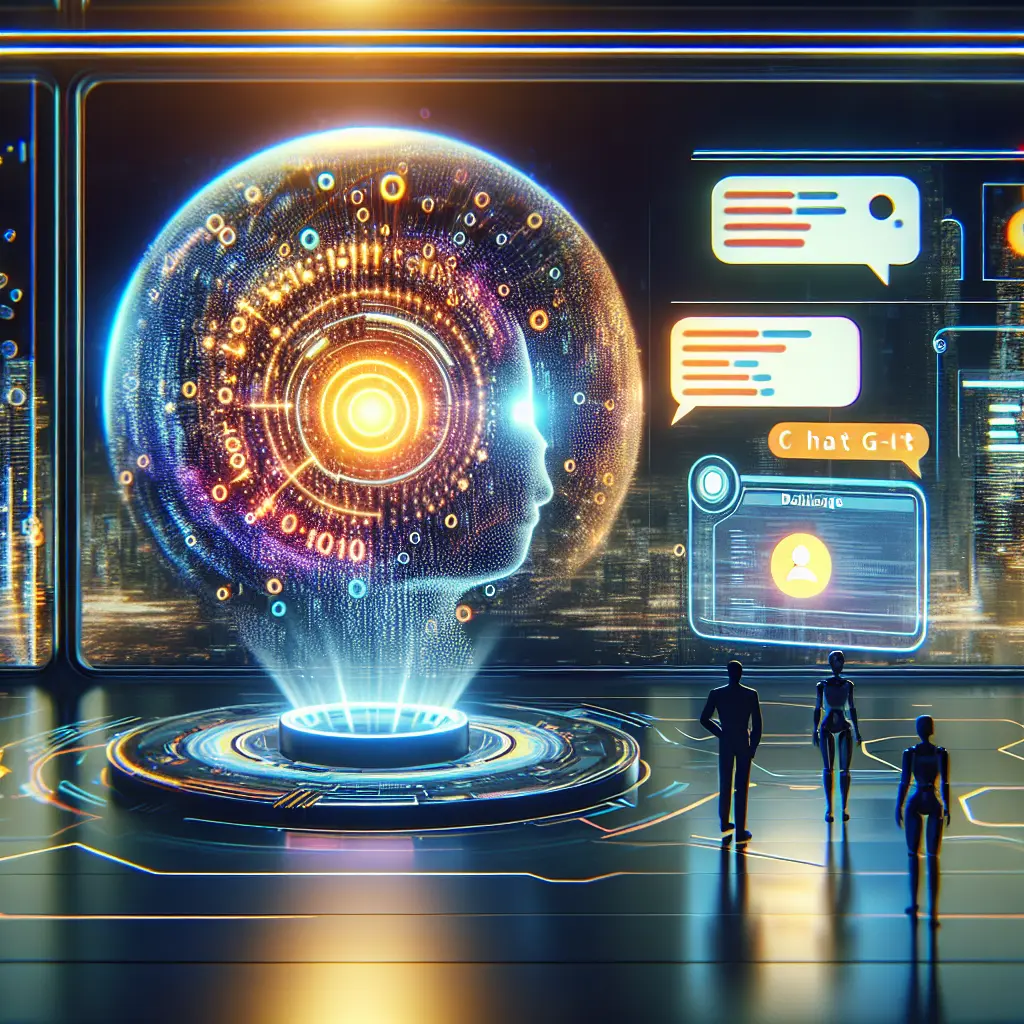
As we stand on the brink of a new era in artificial intelligence, it's clear that AI is not just a fleeting trend but a transformative force reshaping every facet of our lives. From business to healthcare, education to ethical considerations, the evolution of AI technology, particularly advancements in ChatGPT, is both exciting and, at times, daunting. This article delves deep into the future trends of AI, spotlighting recent developments and their implications across various sectors.
The Onslaught of SearchGPT: A Rival for Google
One of the most groundbreaking developments in the AI landscape is OpenAI’s introduction of SearchGPT, aimed directly at challenging Google's search engine dominance. This innovative tool leverages the capabilities of ChatGPT to provide search results that are not just data-driven but contextually aware, offering responses in a conversational style that mimics human interaction (Source). This move could potentially redefine how we perceive and interact with search engines, making digital inquiries more interactive and engaging.
ChatGPT-4o: Balancing Utility with Privacy
With great power comes great responsibility, and the release of ChatGPT-4o is no exception. As this advanced model finds its way into everyday applications, concerns about data privacy are inevitable. Trust in AI systems is crucial, especially when dealing with sensitive information. Users and regulators alike are scrutinizing whether ChatGPT-4o can handle private data without compromising confidentiality (Source).
Medical Diagnostics: ChatGPT's Limitations
Despite its prowess, ChatGPT has shown significant limitations in medical diagnostics. A recent report highlights that while AI can assist healthcare professionals by providing information quickly, it lacks the nuanced understanding required for accurate diagnosis and should not replace human judgment in healthcare settings (Source). This revelation underscores the importance of maintaining a critical balance between AI assistance and professional expertise in medical practices.
The Voice of ChatGPT: A New Era of Interaction
In an exciting development, OpenAI has announced that ChatGPT will soon feature advanced voice capabilities, moving beyond text-based interactions. This upgrade will enable ChatGPT to engage users with voice responses, enhancing its usability and accessibility (Source). The promise of AI not only understanding but also speaking in nuanced tones, accents, and correct pronunciations can revolutionize user experience, making technology more inclusive.
Ethical AI: Teaching and Consequences
The teaching of AI models raises significant ethical concerns. Recently, the creator of Dilbert claimed to have taught ChatGPT hypnosis techniques, sparking a debate about the potential dangers of imparting such knowledge to AI systems. This incident highlights the need for stringent ethical standards and guidelines in AI training processes to prevent misuse and ensure AI behaves within socially acceptable norms (Source).
In Pursuit of Perfect Recommendations
AI's integration into entertainment has seen platforms striving to perfect movie recommendation systems. By analyzing viewer preferences and watching habits, AI can suggest films that are more likely to be enjoyed by the user, enhancing personalized entertainment experiences (Source).
AI in Business and Education: An Unstoppable Force
The incorporation of AI in business and education continues to accelerate. In business, AI predictive analytics are being used to forecast market trends and consumer behavior, thereby informing strategic decisions (Source). Meanwhile, in education, AI tools like ChatGPT are being employed to develop personalized learning experiences and automate administrative tasks, allowing educators more time to focus on teaching (Source).
Machine Learning and NLP: The Backbone of AI Evolution
Underpinning the advancements in AI are the robust fields of machine learning and natural language processing (NLP). These disciplines continue to grow, driven by research aimed at making AI models like ChatGPT more efficient, context-aware, and capable of handling complex interactions (Source).
The Societal Impact of AI
The broad integration of AI across different sectors illustrates its significant impact on society. From transforming job roles to influencing daily decisions, AI’s influence is profound and pervasive. As we embrace this technology, ongoing dialogue about its ethical implications remains crucial to ensure its benefits are distributed equitably across society.
Conclusion: Embracing the Future with Responsible Innovation
As we navigate through these advancements in AI technology—be it ChatGPT's new capabilities or its applications in various fields—it is imperative to foster an environment of responsible innovation. While AI offers remarkable opportunities for enhancement across multiple domains, it also poses challenges that require careful consideration and management.
In conclusion, as we stand at the crossroads of AI innovation and its societal integration, let us commit to advancing this technology with a conscientious approach, ensuring it serves the greater good while respecting individual privacy and ethical boundaries.
Thomas Knight